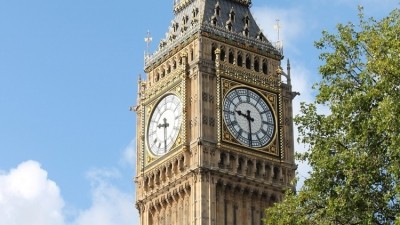New law introduced to resolve remaining commercial rent debts as moratorium ends

The Commercial Rent (Coronavirus) Act 2022 received Royal Assent yesterday (24 March), meaning that now a legally binding arbitration process will be available for eligible commercial landlords and tenants who have not already reached an agreement.
"This new law will give commercial tenants and landlords the ability to draw a line under the uncertainty caused by the pandemic so they can plan ahead and return to normality," says Business Minister Paul Scully.
The law applies to commercial rent debts of businesses including pubs, gyms and restaurants which were mandated to close, in full or in part, from March 2020 until the date restrictions ended for their sector. Debts accrued at other times will not be in scope.
It comes as the lease forfeiture moratorium, which was introduced at the onset of the Covid crisis and prevented the repossession of commercial premises if businesses are unable to pay their rent due to the pandemic, expires today.
At various intervals over the last year or so, representatives from across the hospitality sector have voiced concerns that the eventual end of the moratorium could lead to a bloodbath of small business failures, but lately commentators have struck a more optimistic note.
“There is hope that landlords, restaurateurs, and retailers will have much more collaborative and cooperative relationships moving forward following the expiry of the lease forfeiture moratorium,” says Victoria Oates, director of professional services at leisure property agency Shelley Sandzer.
“We have witnessed a real structural change in the way that businesses and landlords handle their transactions; with a much more human approach being taken by both parties. At the end of the day, one cannot work without the other, and it’s important this balance is recognised and appreciated by all.
“It is safe to say landlords and commercial tenants are able to form new rent agreements together, despite the ending of the lease forfeiture moratorium. It’s unlikely to cause exponential damage to business across the UK – most landlords have been in talks with their tenants, offering solutions and ways to combat the issue. In addition, new laws and extensions will be put in place to protect those that still need to work out grey areas to resolve disputes.”
While the moratorium has ended, eligible firms remain protected for the next six months during which arbitration can be applied for or until the conclusion of an arbitration.
The Government says it encourages commercial landlords and tenants to negotiate their own agreement where possible, so that an arrangement to resolve debt is mutually agreed, instead of resorting to the arbitration process.
To that end, a new Code of Practise was published last year to provide commercial landlords and tenants with a clear process for settling outstanding debts.
“Landlords and tenants should keep working together to reach their own agreements where possible using our Code of Practice to help them, and we’ve made arbitration available as a last resort," adds Scully.
“Tenants who can repay their rent debts in full, should do so, and when they cannot, landlords should try to share the burden, so we can all move on."


























